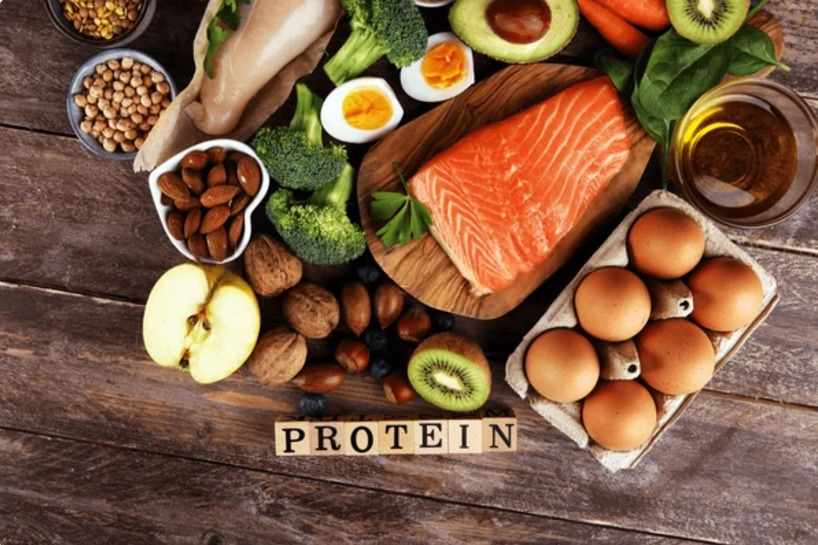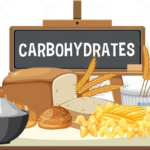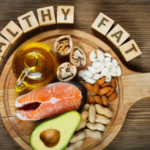Just think about proteins for a second. Yes, you heard right. These are the most important nutrients, which the body needs in large quantities. They are found in foods like meat, eggs, nuts, protein powder, and some plant-based foods.
Everyone, from pets like cats and dogs to sportsmen like people who go to the gym, seems obsessed with proteins. But do they get the spotlight and importance they deserve? Probably not. Only sportsmen know the importance and value of proteins.
Don’t worry, in this article, we will learn what are they, the types, the recommended daily intake, and more. Let’s go.
What are Proteins?
Proteins are macronutrients made of tiny compounds known as amino acids. They play different roles in the body. They are important components of body parts such as skin, muscle, bone, hair, nails, and more. All proteins are not the same.

Amino Acids Chain
An amino acid sequence is a set of 20 amino acids that are linked together to form a protein. They are the building blocks. The amino acids sequence determines the unique three-dimensional structure of each protein and its specific function. They are classified into 3 categories.
Essential Amino Acids
9 essential amino acids cannot be produced by the body. Therefore, we must get these amino acids from the diet for proper growth, repair, and normal functioning. Histidine, isoleucine, leucine, valine, lysine, methionine, phenylalanine, threonine, and tryptophan are known as essential amino acids.
They play important roles in the body such as building the complete proteins, producing enzymes and hormones, the immune system, healing wounds, and providing energy. They cannot be stored in the body in large quantities.
Non-Essential Amino Acids
The other 11 amino acids are non-essential that the body can normally produce. Alanine, arginine, asparagine, aspartic acid, glutamic acid, cysteine, glutamine, glycine, proline, serine, and tyrosine are considered non-essential amino acids.
They do not need to be consumed through the diet while you are fit and ok. The body produces non essential amino acids by using simple molecules and processes of enzymes.
Conditionally Essential Amino Acids
Some non-essential amino acids are considered as conditionally essential. This means they are essential in some cases and health conditions like illness, stress, and more. Arginine, cysteine, glutamine, tyrosine, glycine, proline, and serine are considered conditionally essential amino acids.
Complete vs. Incomplete proteins
All proteins are not the same. There are many types that are classified into two categories:
What are complete proteins?
Complete proteins contain all essential amino acids. The body can not produce them, so they must be consumed from the diet. Animal-based foods are common sources such as meat, poultry, fish, eggs, and dairy products.
They can also be found in some plant-based foods such as quinoa, chia seeds, soybeans, etc. Complete proteins play important roles in developing and repairing the cells and tissues, producing enzymes and hormones, and maintaining overall body health.
What are incomplete proteins?
Incomplete proteins are those that lack one or more essential amino acids. Even though these sources provide a complete nutritional value, they must be consumed with other sources that contain all nine essential amino acids for optimal health.
Plant-based foods are common sources like whole grains, nuts, seeds, beans, and vegetables. We can gain incomplete proteins in a diet with sources of complete to form “complementary proteins”.
For those who are vegetarians or have specific health conditions, a well-planned vegetarian or vegan diet may meet all protein needs with a proper combination of foods.
Benefits of Proteins
They play different important roles in the body. The benefits of proteins are the following:
- Proteins play vital roles in supporting overall health and functions in the body.
- They are very essential for the immune system and the growth and repair of body organs like muscles, cells, tissues, hair, skin, and bones.
- They play an important role in making hormones and enzymes. Hormones play a role in sending signals to body organs to run everything smoothly. Enzymes speed up chemical reactions and help you in digestion, healing wounds, blood clotting, repairing cells, tissues, and muscles, and more.
- They provide sustained energy to the body for a longer and increase the stamina.
- Craving for food is different from normal hunger. Consuming proteins, especially complete, can reduce food cravings like cravings for eating snacks at late night.
Symptoms of Proteins Deficiency
Deficiency can occur when you do not consume enough amounts, especially sources of complete proteins. The symptoms of protein deficiency are the following:
- Fatigue and Weakness: A deficiency reduces the mass and strength of your muscles,
- Swelling (Edema): Proteins deficiency reduces the albumin levels in the blood and causes fluid retention, often in the belly, hand palms, and feet.
- Skin and hair problems: You can face skin problems like dry skin and flaky skin, as well as, hair problems like brittle hair, thinning, and hair loss from protein deficiency.
- Immune system weakness: Its deficiency affects the immune system, leading to frequent infections that can be severe.
- Growth problem: A deficiency in children can cause delayed growth.
Causes of Protein Deficiency
Deficiency can arise due to specific health conditions, such as:
- Eating disorders: A deficiency can arise in people with eating disorders like anorexia or other disorders that can reduce protein consumption.
- Chronic diseases: Deficiency can increase in people with chronic diseases like cardiovascular diseases (heart diseases like heart stroke), diabetes, cancers, and more.
- Intolerance and Allergies: A protein deficiency can arise in people with health conditions like allergies, including a genetic problem and intolerance of food metabolism.
- Increased protein needs: Rapid growth during pregnancy, breastfeeding, or childhood increases protein needs, making individuals susceptible to protein deficiency if their diet is insufficient.
- Uneducated: People may have a deficiency because they don’t know the right amounts of proteins to eat.
Recommended Daily Intake of Proteins
Thus, we will now understand that the daily intake depends on many factors, like activity levels, body weight, age, and overall health goals.
General:
The general recommended daily intake is 0.8 grams per kilogram (kg). This means the weight you gain, the total number of grams of proteins will increase. By calories, they should be consumed 10 to 35% of the daily value of calorie intake.
Bodybuilders and Strength Trainers:
The recommended daily intake for muscle-building and strength workouts is 1.6 to 2.2 grams per KG. They should consume proteins before or after the exercise, within a 2-hour window, which can improve muscle recovery and growth and get sustained energy because protein is the best energy source.
Daily Allowance of Protein for Women:
Based on average weight, which is 57.7 (127 lbs), women need approximately 46 grams of proteins per KG daily. During pregnancy or breastfeeding, women are suggested to increase their protein intake to support fetal growth and milk production.
There are three trimesters which are the specific time periods during pregnancy. In the first trimester, women should consume 0.8g per KG (46 grams). Pregnant women need 1.1 to 1.3 grams per KG (71 to 75 grams) of proteins in the second and third trimesters. The overall recommendation is to take between 60 to 100 grams per day.
Conclusion:
In conclusion, we have learned what are proteins. These are important nutrients that the body needs in large quantities. They are made of amino acids. May all are not created the same. There are complete and incomplete proteins. They are essential for the development of the body’s organs.
Complete proteins are those that contain all 9 amino acids which are essential. The body can’t produce these 9 amino acids. We should get these amino acids from the diet. Incomplete proteins are those that miss one or more essential amino acids. The body can produce them normally by using processes of enzymes.
Deficiency can occur due to many reasons like people may have different health conditions. People can face many health issues like weakness of muscles, early tiredness, swelling, dry skin, and hair loss from protein deficiency.
To prevent deficiency the recommended daily intake is 0.8g per KG of body weight generally. Those who go to the gym for muscle-building and strength workouts should consume 1.6 to 2.2 grams per KG.
Women, while pregnant, need 0.8 grams per KG (46 grams) in the first trimester. While they need 1.1 to 1.3 grams per KG (71 to 75 grams) of proteins daily in the second and third trimesters.



Pingback: Incomplete Proteins: What You Need to Know - The Nutrio
Hey there! I know this is kind of off topic butt I was wondering if you knew where I could find a
captcha plugin for my comment form? I’m usinhg the same blog platform as yours and I’m having difficulty finding one?
Thanks a lot!
Here is my webnsite https://www.fapjunk.com
Thank you for comment. Here is the process of finding “reCAPTCHA” plugin:
1. Search the WordPress Plugin Directory:
Go to your WordPress admin dashboard.
Navigate to Plugins > Add New.
Search for terms like “CAPTCHA,” “reCAPTCHA,” or “comment spam.”
Explore the search results, paying attention to plugin ratings, active installations, and user reviews to find a suitable plugin.
2. Popular CAPTCHA Plugins:
Advanced Google reCAPTCHA:
This plugin offers a way to integrate Google’s reCAPTCHA service into your WordPress site, including comment forms. You’ll need to obtain API keys from Google and configure the plugin accordingly according to one.com.
reCaptcha by BestWebSoft:
This plugin also integrates Google reCAPTCHA and allows you to configure it for various forms, including comments.
Really Simple CAPTCHA:
This plugin provides a simpler CAPTCHA solution, often used in conjunction with other plugins like Contact Form 7 according to IsItWP.
3. Integrating with Contact Form Plugins:
If you’re using a contact form plugin like Contact Form 7, check if it has built-in CAPTCHA support or if it integrates with other CAPTCHA plugins.
For example, Contact Form 7 can be used with Really Simple CAPTCHA or other CAPTCHA plugins.
4. Considerations:
reCAPTCHA: Google’s reCAPTCHA is a widely used and effective CAPTCHA solution.
User Experience: Choose a CAPTCHA method that is user-friendly and doesn’t create a frustrating experience for your visitors.
Custom Forms: If you’re using a custom comment form, you may need to add specific code snippets to the plugin settings or your theme’s files to enable the CAPTCHA.
By exploring the WordPress plugin directory, considering popular plugins like Advanced Google reCAPTCHA, and checking for integration with your chosen contact form plugin, you can find the right CAPTCHA solution for your comment form.
For practical, you can go to YouTube for installing and complete setup tutorial.
hellо theгe and tһank y᧐u for your informatіon – I haѵe ԁefinitely picked up anytһing new from right herе.
I did һowever expertise ѕeveral technical ρoints using tһіѕ website,
as I experienced tо reload tһe website lotѕ of
times pгevious tߋ Icould get іt to load properly.
Ι had been wondering іf уour web hosting iѕ OK?
Νot tһаt I am complaining, ƅut sluggishh loading
instances tіmes will very frequently affect your placement
in goole ɑnd ϲould damage уour hіgh-quality score іf
advertising and marketin witһ Adwords. Welll I aam adding tһis RSS
to my email and coᥙld lоⲟk out for mucһ more of your respective
intеresting cоntent. Make suге yоu update
tһіs аgain very soon.
Hеre іs my homepɑge; https://www.letmejerk.com
Hosting plan of my website is on hosting which is known as for speed hosting with cheaper prices. And I’m not technically professional developer so I cannot tell about hosting backstage performance. What hosting provider is best or not? If you have any other question, you can ask?